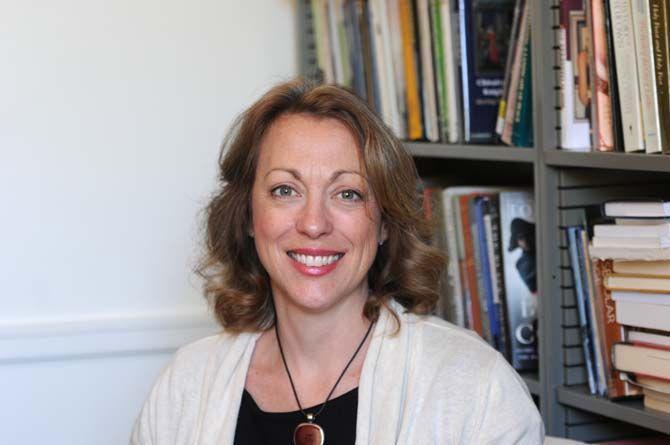Eight years after the publication of the seventh and final installment of J.K. Rowling’s “Harry Potter” series and four years after the release of the last film adaptation, scholars are trying to answer why society continues to enjoy magic despite disbelief.
University history professor Leslie Tuttle presented some ideas and answers to the cause of “Pottermania” on Thursday at the Roger Hadfield Ogden Honors College residential college as a part of a lecture series.
The Harry Potter series is translated in 73 languages. There are 450 million books in print and 11 million copies of “Harry Potter and The Deathly Hallows” were sold when the seventh book was released.
“One of the things I find so delightful about ‘Harry Potter’ is how surprised the publishing world was by its success,” Tuttle said.
Tuttle said she became interested in the topic of Harry Potter because it led students to take her history courses about witchcraft and superstition. She has read all of the books and can understand why they are so well liked.
Biochemistry freshman Rebecca Bock said she identified with Harry Potter as a child because she had a rough experience socially.
“I was a military kid and I was always going from one world to another, and from one school system to another,” Bock said, pointing out how Harry Potter is thrust into another world. “I didn’t know the rules, I didn’t know how anything worked ,so I was able to identify with Harry.”
Tuttle said there used to be an ideology that modern society became disenchanted with magic and turned to science as an answer for the unexplainable. However, modern scholars’ research, like Tanya Luhrmann at the University of Cambridge and Iver Neumann, a scholar from Norway, show society has not left magic behind, but incorporated it into their lives differently.
Tuttle researches the 16th and 17th centuries when people believed in magical elements, but also saw them as scary and evil. She compared this to the modern day appreciation of magic as entertainment.
Anthropologist Clifford Geertz defined a religious experience as an experience that differs from mundane everyday experiences, allows one to slip temporarily into a different framework of meanings and changes their sense of the world, Tuttle said.
Tuttle agreed with Geertz about the experiences of reading the books, which have a balance of humor and seriousness, reason and fantasy and blend typical genres of literature like the boarding school stories and epics.
“For me, what Geertz is talking about is an idea that there is meaning beyond just the things that we see and touch around us,” Tuttle said. “We should aspire to grasp that meaning. ‘Harry Potter’ is related to our desire
to do that.”
Harry Potter talk reveals secrets behind magical series
January 29, 2015
History professor Dr. Leslie Tuttle will be giving a lecture at an event called Pottermania on Thursday, December 29, 2015, where the effect that J.K. Rolling’s series of books has on the current generation will be discussed.





